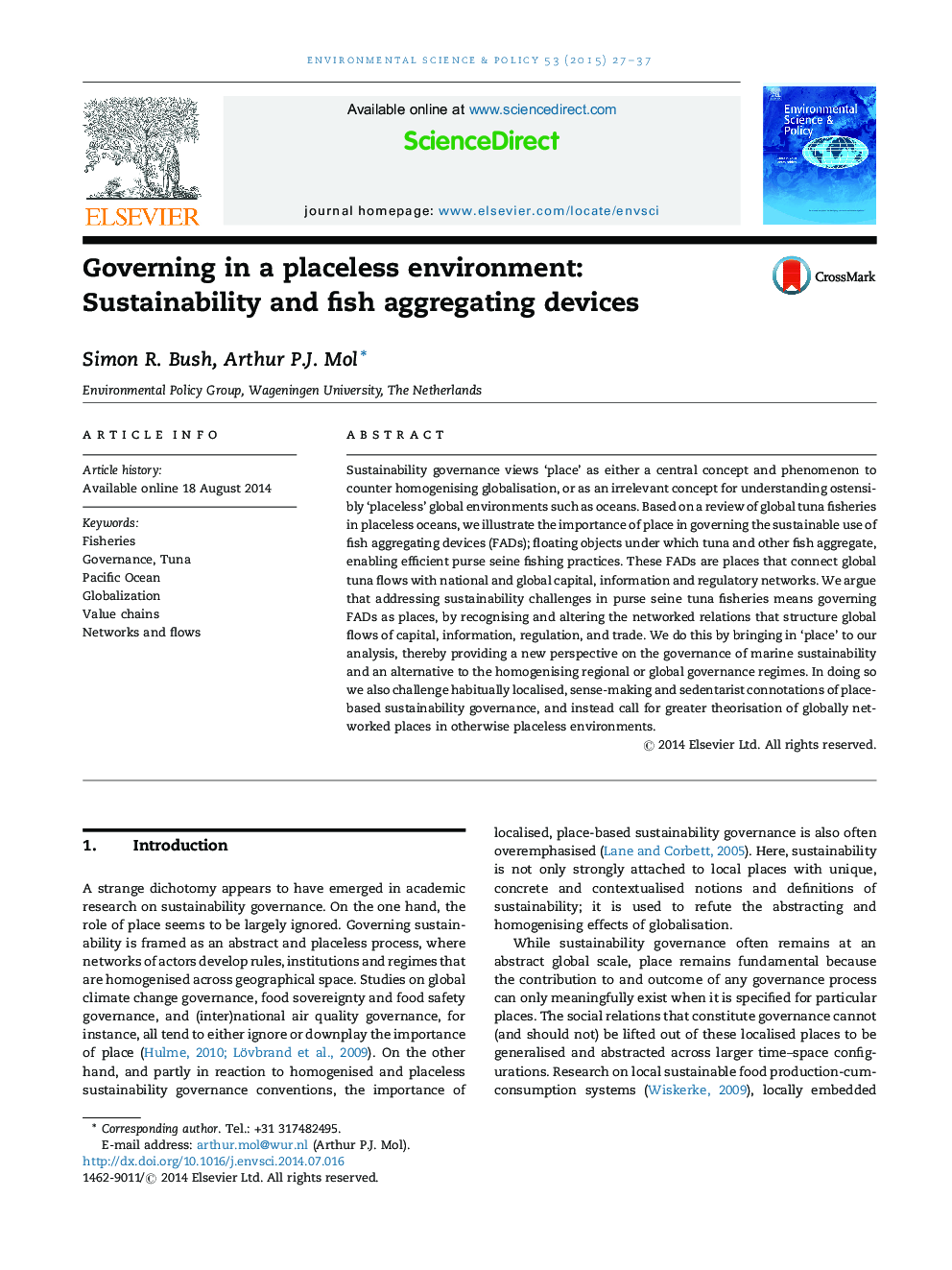| Article ID | Journal | Published Year | Pages | File Type |
|---|---|---|---|---|
| 1053469 | Environmental Science & Policy | 2015 | 11 Pages |
•Place is under-theorised in sustainability governance in placeless environments.•We contribute to the theory of place using the extreme case of FADs in tuna fisheries.•FADs as ‘globally networked places’ opposes governance that homogenises oceanic space.•Governance of placeless resources needs more theorisation of globally networked place.
Sustainability governance views ‘place’ as either a central concept and phenomenon to counter homogenising globalisation, or as an irrelevant concept for understanding ostensibly ‘placeless’ global environments such as oceans. Based on a review of global tuna fisheries in placeless oceans, we illustrate the importance of place in governing the sustainable use of fish aggregating devices (FADs); floating objects under which tuna and other fish aggregate, enabling efficient purse seine fishing practices. These FADs are places that connect global tuna flows with national and global capital, information and regulatory networks. We argue that addressing sustainability challenges in purse seine tuna fisheries means governing FADs as places, by recognising and altering the networked relations that structure global flows of capital, information, regulation, and trade. We do this by bringing in ‘place’ to our analysis, thereby providing a new perspective on the governance of marine sustainability and an alternative to the homogenising regional or global governance regimes. In doing so we also challenge habitually localised, sense-making and sedentarist connotations of place-based sustainability governance, and instead call for greater theorisation of globally networked places in otherwise placeless environments.
Graphical abstractFigure optionsDownload full-size imageDownload as PowerPoint slide
